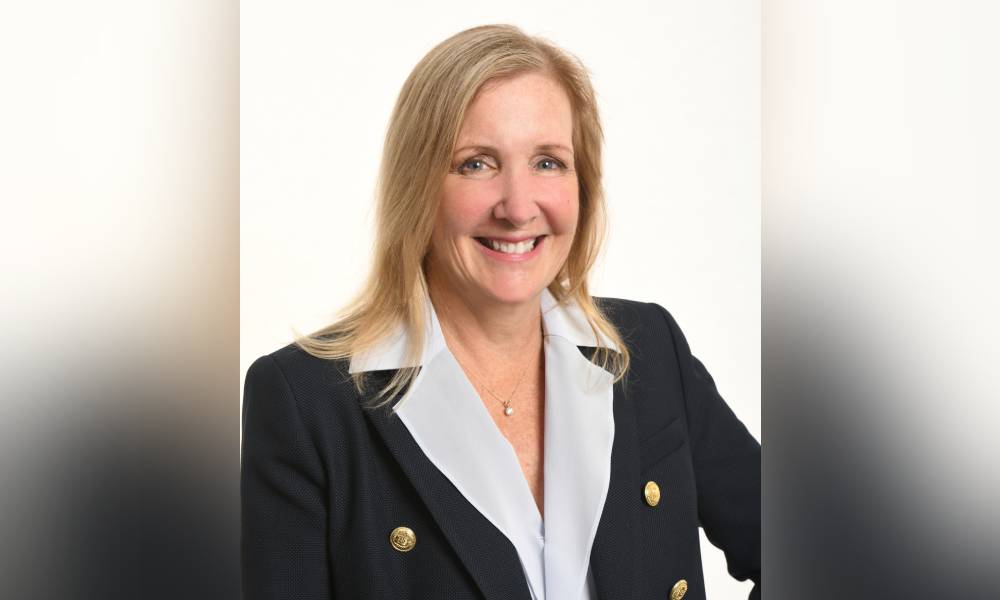President and CEO of Bridgehouse Asset Managers highlights advisors’ frontline role in preventing self-sabotaging decisions

Yesterday, as Canadians across the country celebrated Thanksgiving Day, advocates worldwide also took part in observing Mental Health Day.
From Zoom fatigue to quiet quitting, a whole host of mental health concerns are weighing on ordinary Canadians who are still dealing with the life-altering fallout of the COVID-19 pandemic. Beyond that, they’re now confronted with economic and financial uncertainty.
“Stress can come in three different areas of your life: life events, physical or mental illness, and financial or economic events,” says Carol Lynde, president and CEO at Bridgehouse Asset Managers. “Those stresses can certainly derail your financial plan if you let them.”
Read more: Client mental health is affecting wealth management decisions
According to research released by the Canadian Mental Health Association (CMHA) in March, 46% of Canadians are getting stressed as they have to cope with uncertainty. Bridgehouse has also confirmed through its own research that major changes in financial state can induce stress and anxiety for individuals.
“Aside from major financial changes, life-altering events like having a baby, buying a house, or going through divorce could lead to stress-induced health breakdowns,” Lynde continues. “We use a tool called the Holmes-Rahe Life Stress Inventory. It indicates an individual’s susceptibility to those types of breakdowns, and we’ve shared it across the country with financial advisors and investors.”
More concerningly, statistics from the Mental Health Commission of Canada found one in five Canadians will experience a mental health problem or illness in any given year. For its part, Bridgehouse also found over 90% of financial advisors have encountered clients with mental health challenges that impact their financial decision-making; that was in May 2020, during the thick of the COVID-19 pandemic crisis, though today’s environment of economic and financial turbulence also lends itself to negative reactions among clients.
“We always talk about vulnerable investors. But when you’re facing an extreme situation, you’re likely to go to one of three responses: fight, flight, or freeze,” Lynde says. “No matter your age, gender, wealth level, or occupation, we all react in a certain way, and we have to think about how we’re reacting as we’re stimulated by these forces.”
More often than not, people make self-sabotaging financial decisions, like making unscheduled withdrawals from their RRSP, when they’re in an emotionally or mentally compromised state. And as the custodians to their clients’ investments and assets, advisors are often the first line of defence – the “canary in the coalmine,” as Lynde puts it – to detect when something’s amiss.
Read more: Mental health: advisors can be canary in the coal mine
“We don’t expect advisors to be mental health professionals, but we believe they’re very well positioned to notice changes in client behaviour,” she says. “Financial advisors are an objective third party. They're going to see you reacting in a way that you typically wouldn't react, and they can probe a little bit to try to understand why that was.”
Recognizing the role of advisors in providing direction, confidence, and comfort to their clients in pivotal moments, Bridgehouse has partnered with the CMHA to develop some tools to help advisors navigate those conversations. One strategy involves using social proof to draw out potentially sensitive information that clients may not volunteer right away.
“If you're concerned that your client’s getting into a little bit more debt, you can mention that 67% of indebted Canadian households saw their debt increase because of COVID-19,” Lynde says. “That helps you set the stage and ask more meaningful questions that are specific to your clients and their finances.”
Another tool from Bridgehouse, the Stress Management & Intervention Strategy, sets out different scenarios that clients might be worried about. Going through situations before they become emotional realities – a client might imagine themselves getting sick and unable to work, for example – allows advisors to objectively discuss different courses of action to keep them financially on-track.
And with the extreme movements that have been going on in the markets, investors are more likely to over-monitor their portfolios and account statements. But generally, Lynde says, investors would be better off not checking their investments all the time; one other tool Bridgehouse has, the Wheel of Investor Emotion, shows how much anxiety someone can experience from checking their portfolio daily, monthly, quarterly, and annually.
“Your portfolio is there for you to invest in the long term. And if you push a button and crystallize your losses, you're done,” she says. “Markets will go up and down, and so does inflation. But staying the course and sticking to your plan is really the key to long-term success.”


